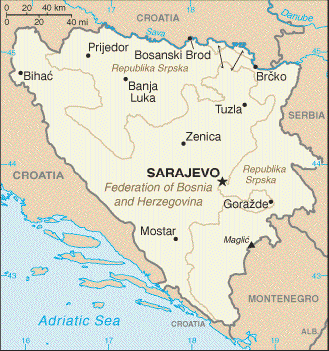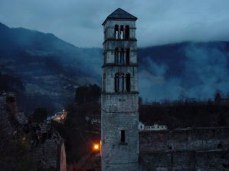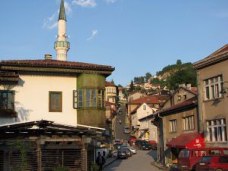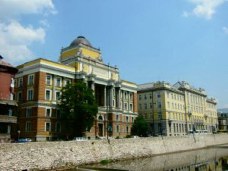Bosnia and Herzegovina
Travel The World

Country name: Bosnia and Herzegovina ( Bosna i Hercegovina )
Capital: Sarajevo
Location: a country in south-eastern Europe
Terrain: mountains and valleys
Nationality: Bosnian, Herzegovinian
Ethnic groups: Bosniak, Serb, Croat.
note: Bosniak has replaced Muslim as an ethnic term in part to avoid confusion with the religious term Muslim - an adherent of Islam.
Religions: Muslim, Orthodox, Roman Catholic.
Languages: Bosnian, Croatian, Serbian
Background:
Bosnians have been off the political radar screen for over 10 years. Few Muslims know much about the Bosnian people, where they
came from and how they became an advanced civilization in Europe. Bosnia was a Muslim gem in the world of Christians but eventual succumbed to forces beyond its control.
Bosnia was once part of the ancient Byzantine Empire and lived under Orthodox Christian rule. When the Ottomans came in 1492
they conquered the local king who had been abandoned by Western Europeans. It didnít take long before the Ottomans instituted key
socio-political administration changes which included a new landholding system, reorganization of administrative units, and social differentiation by class.
Bosnia became wealthy as a trading and frontier state.
The success continued until just after the fall of the Ottoman Empire in World War I as the Kingdom of Yugoslavia was developed by 1929 by the support of the communists.
Serb nationalism became popular movement among Christians and as a result nearly all of the Jewish population was exterminated. Muslims also became victims of gruesome
attacks that were aimed on the entire Muslim population. Needless to say, economic independence declined and poverty became rampant during this period.
This same violence continued into the modern era in 1992 when Muslims were brutally slaughtered by Yugoslavian nationalists. Bosnia was damaged the worst by the attacks
by the larger population of Croats and Serbians. A 1995 report by Richard Holbrooke indicated that the killing of Muslims in Bosnia was the most devastating and gruesome massacre in Europe since WWII.



The Bosnian people have suffered the worst out of the civil war and currently live in a world of high ethnic tension, destitute economy and poor education.
Even though the Dayton Peace accords have separated Bosnia into the Muslim-Croat federation and the Bosnian Serb republic discrimination still exists at the hands of Serbians.
The international community maintains fewer than 7,000 troops in the region as clashes subsided. Today life in Bosnia is still difficult for residents as water, jobs and security are sparse.



Images: Left to right. A tower in Jaijce, Inat, Sarajevo.